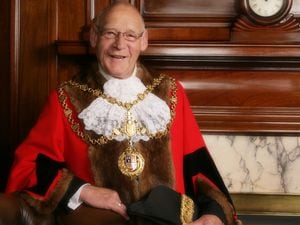Topsy-turvy world of Starmer’s principles

In an extraordinary incident this week, Sir Keir Starmer stood on his head.
I'm not sure I'm allowed to say that. This is Sir Keir Starmer we're talking about after all.
And I want to make clear that in saying that he is now completely upside down, I am not insinuating that he could be personally responsible or even involved in the topsy-turvy process.
His new positioning has received only modest coverage. Maybe that's because not that many people have noticed that the Labour leader is now inverted or, more likely, they do not think it is noteworthy.
But as the trust-in-politics gimmick is very topical at the moment, surely it cannot be inflammatory or illegal to point out that a politician has turned 180 degrees in a vertical plane.
And as he stands on his head, he is acting as if nothing has happened, and this is all natural and unremarkable. Nothing to see here. It's the same Sir Keir he assures us, from a voice coming from somewhere about knee level.
What it amounts to in political terms is that something he believed with all his heart only a matter of months ago he now doesn't believe in, and you can believe him on that, or if he does still believe in it he's not saying he believes in it, or alternatively does not believe there are enough votes in it to warrant saying he still believes in it.
In this political personality transplant the diehard Remainer Sir Keir Starmer, who thought the best deal for Britain was the deal the UK already had with the EU, has now transformed into a pragmatic Brexiteer.
For the Remain cause he was resolute, implacable, indomitable, unflinching, unwavering, unyielding, staunch, steadfast, and lots of other words in my thesaurus.
Man of principle Sir Keir voted again and again to give the British public a chance to think again on Brexit.
Come the general election, he was the architect of a very clever policy on the issue.
Had Labour won, he and Emily Thornberry, a fellow diehard Remainer, would have gone to Brussels representing the British government and British people to negotiate a new Brexit deal which in no circumstances they would agree with, support, or recommend.
Keir and Emily would then have given British voters a chance to vote on their deal while these two British ministers of the Crown would not vote themselves in favour of the very deal they had negotiated for Britain.
It would mean, of course, that the entire renegotiation was the biggest act of political bad faith with the British public, perhaps ever.
All that is behind the new-look Sir Keir.
“We have exited the EU and we are not going back – let me be very clear in the North East about that. There is no case for rejoining," he said this week during a visit to the North East which, if you're from London and consulting a map, is technically defined as a place where Labour needs to win back votes.
“What I want to see now is not just Brexit done in the sense that we’re technically out of the EU, I want to make it work. I want to make sure we take advantage of the opportunities and we have a clear plan for Brexit.”
Can we believe our ears?
Put another way, but not the way Sir Keir will want anybody to put it, those voters in the North East and anywhere else for that matter who voted Labour in 2019 based on trusting Sir Keir to battle indomitably, implacably, etc to keep the UK in the EU, have now discovered that trust in Sir Keir on the Europe issue had a best-before date.
The best-before date was the date Labour lost in the general election.
At the heart of all this is a question of whether politicians should follow their principles, or follow the votes.
Sir Keir's predecessor Jeremy Corbyn didn't pretend to be something he wasn't. He followed his principles. The electorate knew what they were voting for.
Or, in his case, not voting for.
Walking upside down? If you want to win back votes, you know it makes sense.





